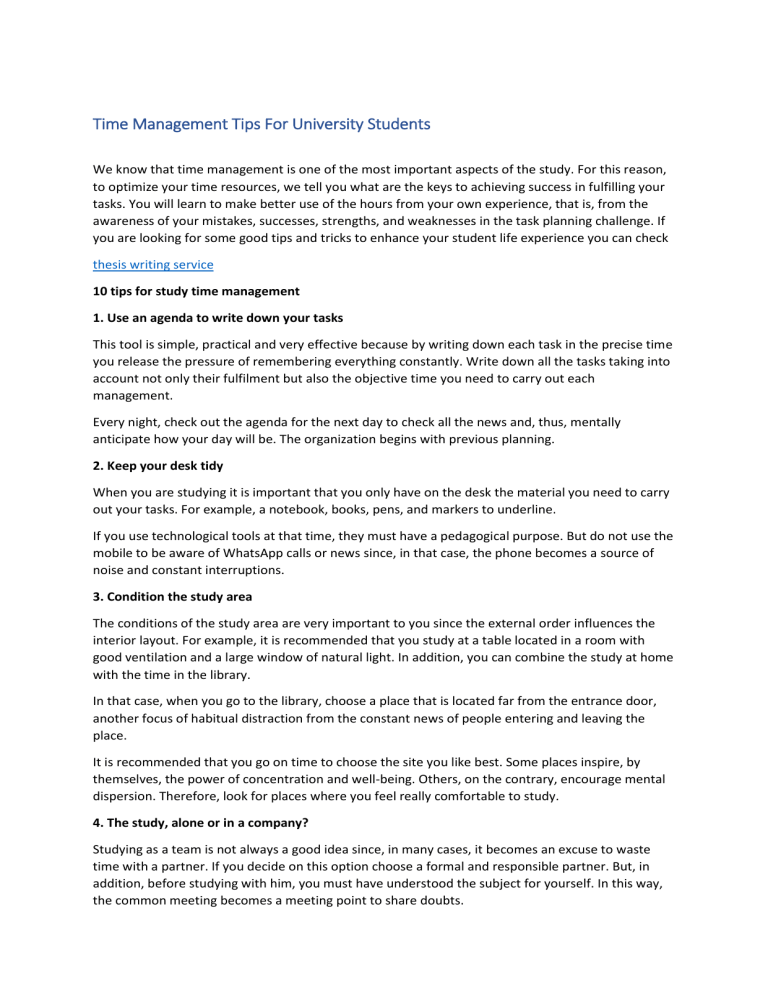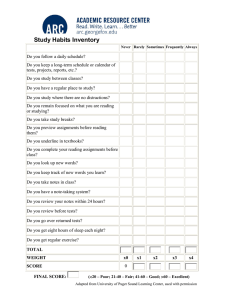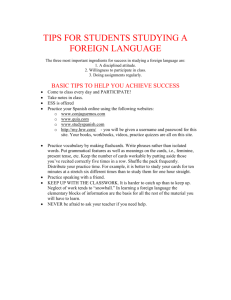
Time Management Tips For University Students We know that time management is one of the most important aspects of the study. For this reason, to optimize your time resources, we tell you what are the keys to achieving success in fulfilling your tasks. You will learn to make better use of the hours from your own experience, that is, from the awareness of your mistakes, successes, strengths, and weaknesses in the task planning challenge. If you are looking for some good tips and tricks to enhance your student life experience you can check thesis writing service 10 tips for study time management 1. Use an agenda to write down your tasks This tool is simple, practical and very effective because by writing down each task in the precise time you release the pressure of remembering everything constantly. Write down all the tasks taking into account not only their fulfilment but also the objective time you need to carry out each management. Every night, check out the agenda for the next day to check all the news and, thus, mentally anticipate how your day will be. The organization begins with previous planning. 2. Keep your desk tidy When you are studying it is important that you only have on the desk the material you need to carry out your tasks. For example, a notebook, books, pens, and markers to underline. If you use technological tools at that time, they must have a pedagogical purpose. But do not use the mobile to be aware of WhatsApp calls or news since, in that case, the phone becomes a source of noise and constant interruptions. 3. Condition the study area The conditions of the study area are very important to you since the external order influences the interior layout. For example, it is recommended that you study at a table located in a room with good ventilation and a large window of natural light. In addition, you can combine the study at home with the time in the library. In that case, when you go to the library, choose a place that is located far from the entrance door, another focus of habitual distraction from the constant news of people entering and leaving the place. It is recommended that you go on time to choose the site you like best. Some places inspire, by themselves, the power of concentration and well-being. Others, on the contrary, encourage mental dispersion. Therefore, look for places where you feel really comfortable to study. 4. The study, alone or in a company? Studying as a team is not always a good idea since, in many cases, it becomes an excuse to waste time with a partner. If you decide on this option choose a formal and responsible partner. But, in addition, before studying with him, you must have understood the subject for yourself. In this way, the common meeting becomes a meeting point to share doubts. 5. Make a study calendar The study calendar is one of the most visual tools in time management. This temporary planning of study time, always in relation to the school calendar itself, allows you not to make the mistake of leaving everything for the last moment. Another of the great mistakes of the students. This way, you can keep your homework up to date. Apply this important criterion: you should devote more time to those subjects that are more difficult for you, and less time to those subjects that seem easier to you. 6. Set daily and weekly goals That is, it is very important that you do not take as a reference, only, the evaluations in which you receive the notes of the quarter, for example. Getting good grades at that time is an important personal objective, however, your goals should be limited to a more short-term context, within the weekly framework. 7. Apply study techniques The study techniques are essential to managing hours. If you use the underline technique, then reinforce your visual memory by highlighting a sentence in each paragraph of the text in a striking color. For the underline to be really effective you have to select very well which sections are the most prominent. In addition, the underlining is the phase prior to the realization of a scheme that is like a tree that by way of synthesis contains the most relevant data on that topic. You can also reinforce your auditory memory by reviewing the lesson aloud. That is, once you think you already know part of the content, start expressing aloud, as if you were telling that topic to another person, all the news. In this way, by listening to yourself, you internalize each concept. 8. Identify what your time thieves are The thieves of time are all factors that make you lose hours. You know yourself better than anyone else, reflect on your own experience and specify your reality. What are the main energy thieves facing students? We tell you. The postponement is one of the most frequent errors, that is, the tendency to leave everything for tomorrow. In this case, stop making excuses, mark yourself fixed habits since this is the best way to internalize the power of discipline. The custom of postponement occurs especially with those tasks that you like least. Always start studying the subject that is most difficult for you. In this way, you have the motivation to know that, as a prize, then you will continue with a subject that you enjoy more. The interruption time is also possible during the study period, for example, home visits. If you know that there will be visits to your home during a given day, then it is recommended that you go to the library because there will be silence there. 9. Rest is essential in the management of minutes If you do not disconnect from study time, then, physical and psychological exhaustion is inevitable at some point. In your agenda, you should not miss the space to enjoy friendship or play sports. Think that when your mind disconnects from studies, then you resume the tasks with greater motivation. In fact, you can also apply the formula of taking five-minute breaks at each hour of study. 10. Try to always go to class To keep your homework up to date you must not only have a study calendar and comply with it, but it is also essential that you go to class every day, take notes and ask the teacher appropriate questions when you have doubts about a particular aspect. Therefore, temporary management begins in class. Studying from your own notes is easier than doing from the notes of a partner. Main errors in the planning of tasks One of the main mistakes in time management is to want to cover a lot in a short time. Your mind is not a machine; therefore, you have a realistic vision in the study. Here are some common and real examples that you can feel very identified with. That person who studies with the television on. If this is your case, keep in mind that it is impossible for you to concentrate. Or also, that student who goes to the library in the company of a friend, they sit together and they are talking all afternoon. Without a doubt, it is inevitable that this plan is appealing to you, however, keep in mind that it takes you away from your goals. Or that student who stays studying all night because he has not taken advantage of the day and this routine alters his rest habits. Try to integrate your study habits following the natural day and night time. Conclusion Why is time management so important? Because time is not infinite, therefore, you have to optimize it to achieve your results. But, in addition, this management learning is also enriching as an adventure that begins in the academic stage and continues in professional life. Imagine the case of that person who falls into the self-confidence of believing that he already knows very well the content of the agenda, however, this excess of self-confidence is a trap that soon translates into a suspenseful examination. Have humility in the study. Another common case is that of the student who is studying a subject and constantly consults the clock time on the mobile phone. But, incidentally, check the news of their social networks. If this happens to you on a regular basis, then it is better to use a wristwatch to keep track of time. The management study time is art. Therefore, apply these tips to your own history to improve academic results thanks to better use of the means at your fingertips.


